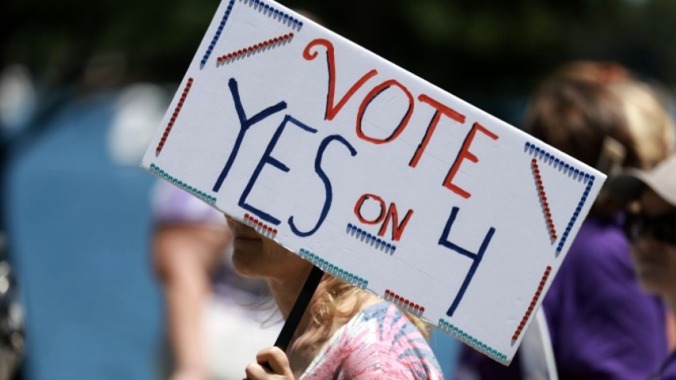Some Bad News for Florida’s Abortion Rights Ballot Measure
A new poll shows 56% of Floridians plan to vote for Amendment 4, but unless the measure to enshrine a right to abortion in the state Constitution wins 60% of the vote in November, the state will continue to live under a six-week ban.
Photos: Getty Images AbortionPolitics Abortion
In November, Floridians will have the chance to vote on Amendment 4, a ballot measure that would enshrine a right to abortion in the state Constitution until the point of fetal viability—and, consequently, repeal the state’s six-week ban that’s been in effect since May. According to the latest poll, abortion rights organizers in the state may face an uphill battle: Per Florida Atlantic University, which surveyed voters last week, 56% of Floridians plan to vote for Amendment 4. But, in Florida, ballot measures require 60% of the vote to take effect, and Republican officials in the state famously trade in aggressive voter suppression.
-

-

-

-

-

-

-

-

-

-

-

-

-

-

-

-

-

-

-

-

-

-

-

-

-

-

-

-

-

-

-

-

-

-

-

-

-

-

-

-








































